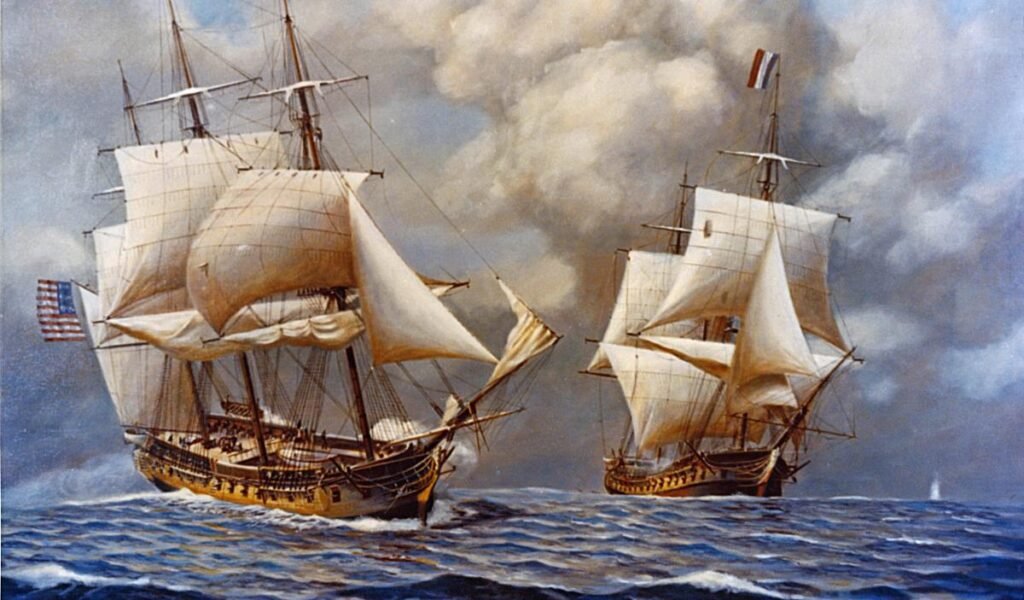
History is filled with bizarre and often unexplainable events, but few are as peculiar as the time France accidentally sold its entire navy. This incident, a perfect blend of bureaucratic blunders, miscommunication, and an improbable chain of events, offers a humorous yet cautionary tale about governance, oversight, and the unintended consequences of seemingly harmless actions. For anyone interested in historical oddities, this story not only highlights the complexities of military logistics but also serves as a reminder of how human error can alter the course of history. From its origins in post-revolutionary France to the ripple effects it caused across Europe, this tale is as entertaining as it is thought-provoking.
The accidental sale of the French Navy might sound like fiction, but it’s a documented event that reveals much about the political climate and administrative practices of the era. At its heart, this mishap underscores the challenges of managing a nation’s resources during times of upheaval. For history enthusiasts and curious minds alike, diving into this peculiar chapter offers a unique lens to examine France’s turbulent past and its impact on global maritime dynamics. So, how did a nation as powerful as France manage to sell off its naval fleet? Let’s embark on a journey through this bizarre episode, unraveling the details that make it one of history’s most extraordinary blunders.
The Historical Context: Post-Revolutionary Chaos
To understand how France ended up in such an extraordinary situation, it’s essential to set the stage. The late 18th and early 19th centuries were a time of immense upheaval in France. The French Revolution (1789–1799) had radically altered the nation’s political and social structures, dismantling the monarchy and reshaping governance. Amid the chaos, administrative systems were frequently overhauled, often leading to confusion and inefficiencies. This was especially true in managing France’s military assets, including its prized navy.
During this period, France was one of the leading naval powers, boasting a formidable fleet that rivaled those of Britain and Spain. The navy was not only a symbol of national pride but also a critical asset for defending trade routes and projecting power globally. However, the Revolution brought financial instability, and the government sought ways to replenish its coffers. Mismanagement, coupled with an urgent need for funds, created a perfect storm for mistakes.
The Chain of Miscommunication
The accidental sale of the French Navy began with an innocuous administrative directive. As part of a broader effort to streamline military spending, the French government ordered a comprehensive audit of naval resources. The goal was to identify surplus or outdated ships that could be decommissioned or sold to private buyers. However, the directive’s wording was ambiguous, and in a bureaucracy already stretched thin, this ambiguity proved disastrous.
Local officials, tasked with implementing the directive, interpreted it differently. Some believed the order applied to a specific category of older ships, while others took it as a blanket instruction to sell off all available naval vessels. The result? Entire fleets were cataloged, appraised, and put up for sale, often at absurdly low prices. To make matters worse, many of the buyers were foreign agents who recognized the opportunity and acted swiftly.
The Impact of the Sale
By the time the central government realized what had happened, much of the navy had already changed hands. The loss of ships left France vulnerable, both militarily and economically. Rival nations, particularly Britain, took full advantage of the situation, solidifying their dominance at sea. France, once a maritime powerhouse, struggled to rebuild its fleet, a process that took decades and diverted resources from other critical areas.
Domestically, the sale sparked outrage. The incident became a symbol of the government’s incompetence, further eroding public trust during an already volatile period. Historians often cite this event as an example of how miscommunication can lead to unintended consequences on a national scale.
Lessons Learned
The accidental sale of France’s navy offers several lessons, both historical and contemporary. For one, it highlights the importance of clear communication within bureaucratic systems. In a time when rapid decision-making was essential, the lack of clarity in the directive proved catastrophic. Furthermore, the incident underscores the need for oversight and accountability, particularly when managing critical assets.
In a broader sense, this historical oddity serves as a cautionary tale about the interplay between governance and logistics. Even the most powerful nations are not immune to human error, and the consequences can be far-reaching.
The Benefits of Exploring Historical Oddities
Stories like this one provide more than just entertainment—they offer valuable insights into the human condition and the complexities of governance. For readers, delving into such tales can spark curiosity and encourage deeper engagement with history. By examining these peculiar events, we gain a better understanding of how small mistakes can lead to significant outcomes, both positive and negative.
Additionally, exploring historical oddities fosters a sense of connection to the past. These stories remind us that history is not just a collection of dates and events but a tapestry of human experiences, filled with humor, tragedy, and lessons that remain relevant today.
Conclusion: A Tale Worth Remembering
The time France accidentally sold its entire navy is more than just a humorous anecdote—it’s a fascinating glimpse into the challenges of governance during a tumultuous era. This bizarre episode underscores the importance of clear communication, effective oversight, and adaptability in the face of unexpected challenges. For history enthusiasts, it’s a story that captivates the imagination, blending the absurd with the profound.
As we reflect on this historical oddity, we are reminded of the enduring relevance of history in understanding the present. The tale of France’s accidental naval sale is a testament to the unpredictability of human actions and the unintended consequences that can shape nations. By exploring such stories, we enrich our understanding of the past, finding lessons and inspiration that resonate across generations.
For readers who enjoy uncovering the unexpected, this story is just the beginning. History is replete with similar oddities, each offering its own unique perspective on the complexities of the human experience. So, the next time you come across an improbable tale from history, remember: sometimes, truth is indeed stranger than fiction.












